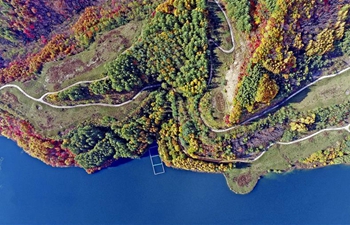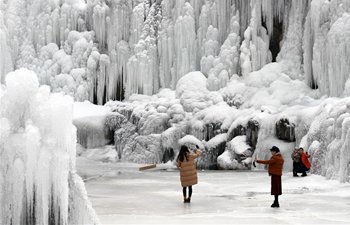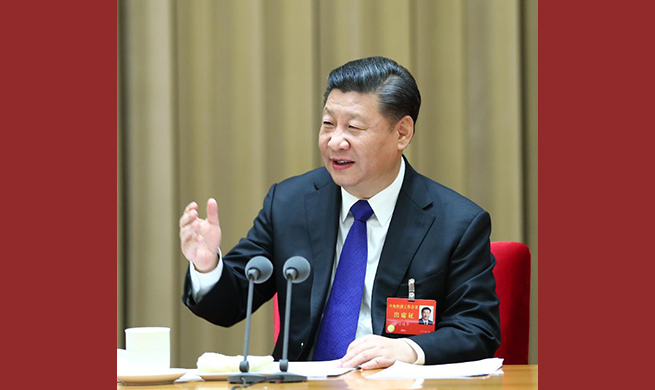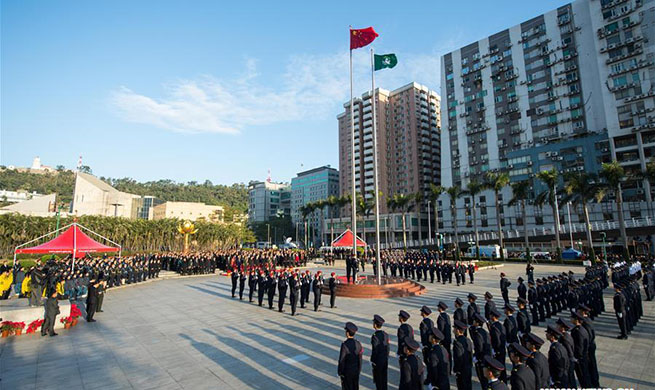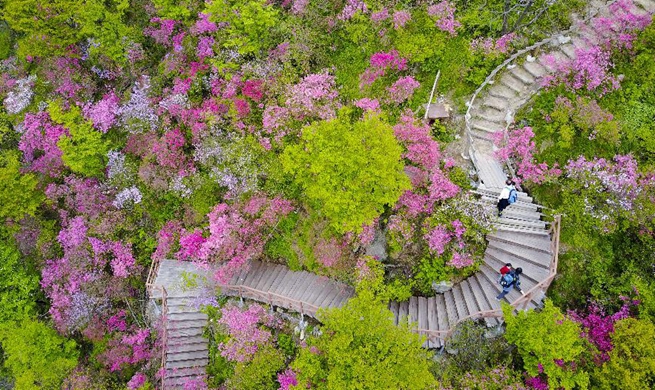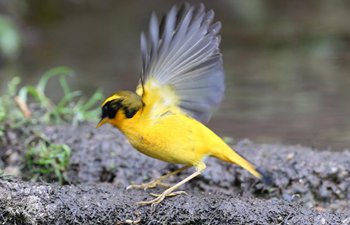by Xinhua Writer Zhang Yongxing
SUVA, Dec. 20 (Xinhua) -- Fiji, a small developing island state in the South Pacific region, is now playing a leading role in fighting climate change widely considered to be one of the biggest threats facing mankind.
For Fiji, 2017 is certainly a significant year as the state has done a lot in dealing with climate change, including co-hosting the U.N. Oceans Conference in New York in June and presiding over COP23-- the U.N. climate negotiations in Bonn, Germany in November. In fact, Fiji has made history by becoming the first such state to preside over COP23.
According to Inia Seruiratu, Fiji's Climate Champion for COP23 and Minister for Agriculture, Rural and Maritime Development and National Disaster Management, the future of Fiji is at stake. The future of our planet is at stake. And Fiji has taken on these climate change-linked responsibilities not only for every Fijian and every Pacific islander but for all 7.5 billion people on earth.
For Fiji and the rest of the world, it is imperative to act now to save the planet by reducing carbon emissions and reducing the impact of climate change.
Voreqe Bainimarama, president of COP23 and Fijian prime minister, has stressed that "We have only one planet to call home and now is the time to move forward together to save it."
"I appeal to the entire world to support Fiji's efforts to continue building the global consensus to confront the greatest challenge of our age. We owe it not only to ourselves but also to future generations to tackle this issue head on before it is too late," he said.
"Unless the world acts decisively to begin addressing the greatest challenge of our age, then the Pacific, as we know it, is doomed."
For Fiji, climate change is really a "to be or not to be" question because the consequences of inaction will be catastrophic.
A study released in Bonn this November showed that by 2050, Fiji's annual losses due to extreme weather events could reach 6.5 percent of Gross Domestic Product (GDP) because of the impact of climate change, with more than 32,000 people pushed into hardship every year.
According to Fiji's National Climate Change Policy, global sea level changes will more than double by the end of this century. Fiji has since 1993 recorded a 6mm increase in its sea level per year, larger than the global average. The rapid rise of sea levels and the resulting saltwater intrusion that stems from the increased ferocity of coastal floods have made portions of the island nation uninhabitable.
As a small state with more than 300 islands and a population of around 900,000, Fiji is highly vulnerable to the effects of climate change and the unsustainable exploitation of the oceans.
Fiji very keenly feels the negative effects of climate change, including unpredictable storms of extreme intensity, such as Tropical Cyclone Winston.
Winston lashed the island state and killed 44 people and caused serious economic losses in February 2016.
In addition, the sea levels rising has caused the Fijian government to identify quite a number of villages to be relocated to higher ground.
Meanwhile, warming seas have caused changes in fish populations and the bleaching of coral reefs.
Currently, Fiji has relocated three villages to higher ground, and the country has another 42 to 43 villages earmarked to be moved to higher ground from coastal areas.
Having assumed the presidency of the the United Nations Framework Convention on Climate Change (UNFCCC) negotiations at COP23, and being the first nation to ratify the 2015 U.N. Paris Agreement, Fiji fully understands the pivotal role "green growth" plays in creating a sustainable economy.
The COP23 has been fruitful and has given a voice to smaller nations that have been most affected by climate change, but who have previously not had a sizable role in negotiations. It has also brought together the international community in the same boat to drive decisive action to limit the rate of global warming.
Fiji and the countries involved, launched the Ocean Pathways Partnership to further action to protect their oceans from climate effects.
They also reached an historic agreement on agriculture, an action plan on gender and a decision that benefits local communities and indigenous peoples. They secured greater funding for critical climate adaptation work, and took the next step in ensuring that the Adaptation Fund shall serve the Paris Agreement.
Finally, they launched a global partnership to provide millions of climate-vulnerable people around the world with affordable access to insurance.
Fiji, which has pledged to transition completely to renewable energy sources by 2030, has adopted a reforestation policy intended to store carbon from freshly planted trees. Working alongside the Global Environment Facility, the Green Climate Fund and several United Nations agencies, Fiji has initiated efforts to monitor and launch rapid responses to climate-related risks.
Fiji has, this October, hosted high-level delegations from around the world to begin dialogues to find ways of addressing the impact of climate change. As one of the 43 nations on the Climate Vulnerable Forum, Fiji has been a vocal proponent of limiting the temperature rise from global warming to 1.5 degrees Celsius.
In 2017, Fiji became the first small island developing state to join the Under2 Coalition, which is an international pact among cities, states and countries committed to limiting the increase in the global average temperature to below 2 degrees Celsius by either reducing their greenhouse gas emissions from 80 percent to 95 percent below 1990 levels, or holding emissions to less than 2 annual metric tons per capita by 2050.
Besides Fiji's first-ever National Climate Change Week being launched in September, the island state also became the first country in the Pacific, the first emerging economy and the first small island state to issue this November a 100 million Fiji dollars (about 48 million U.S. dollars) Green Bond.
The Green Bond will fund projects for climate mitigation and adaptation to build a stronger, more resilient Fiji. In fact, Fiji is also the third in the world to issue the sovereign Green Bond, after France and Poland.
The successful COP23 and the measures Fiji has taken have made the world aware of Fiji in a way that has never been experienced in the nation's history.
Fiji is now more than a vacation spot and a rugby powerhouse, it is a global leader which is at the forefront of the most pressing issue of our time, climate change.





